The elegant languor of Lamu

Roula Khalaf, Editor of the FT, selects her favourite stories in this weekly newsletter.
In Shela, in the Lamu Archipelago off the northern coast of Kenya, the pace and rhythm of daily life are set by the call to prayer. Despite the febrile social atmosphere at the start of every New Year, and contrary to the place’s reputation as a hedonistic hotspot, the muezzin heralding sunrise is what winkles me out of bed and onto the beach. The high tide line perfectly frames the 14km strand beyond the Swahili fishing village – rediscovered during the pandemic as a chic, and safe, enclave. Winds of change are blowing through this conservative community, with better education and employment horizons, and, for the visitor, a wider choice of hideouts beyond the baobab-surrounded verandas of the legendary Peponi Hotel.
When I first came here as a student in the 1980s, only a handful of hippie types made it to what was Africa’s Kathmandu – one of the last remaining outposts of pure Swahili culture on the east coast, which has survived colonisation by Portugal, Britain, Germany and Oman. The Peponi, the former English governor’s colonnaded waterfront villa, served the big-game hunters before it drew mavericks and free spirits to dance at its bar.
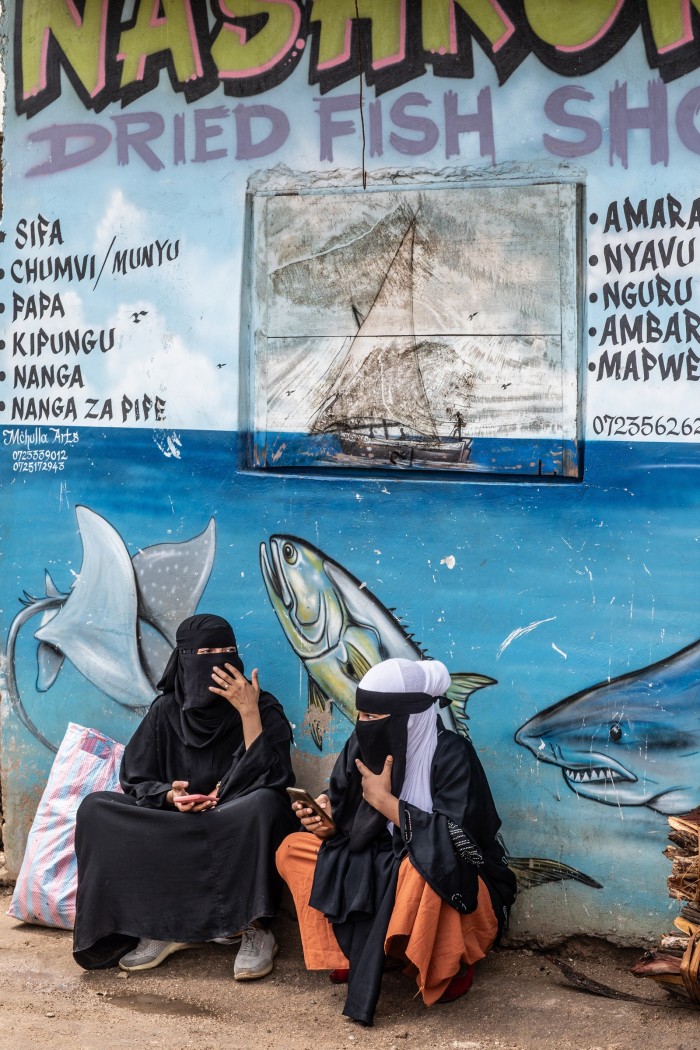
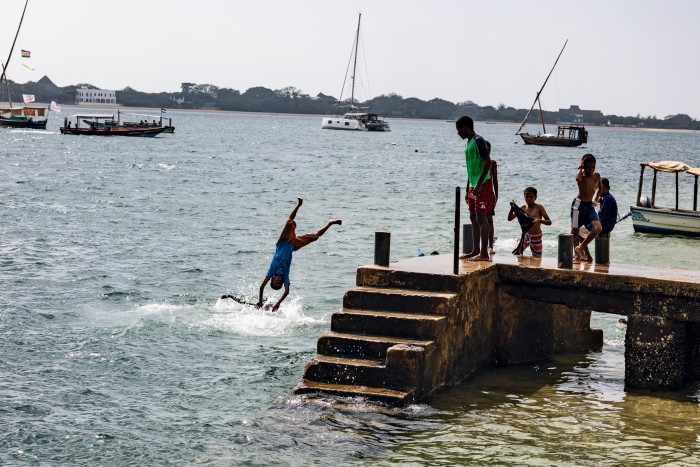
Today it leans out over the water like a sailing ship tugging at the edge of the immense white stretch of sand – a blank canvas, waiting for the day. A daily donkey train trudges along the dunes to collect damp sand in panniers; tonloads of it are needed to convert the island’s traditional coral-stone Swahili houses into the sophisticated holiday villas owned by mostly European artists and creatives – still less than 100, at last count.
Then come the swaying silhouettes of the Peponi camels, kicking up sand. Three years ago, the hotel’s indomitable owner, Carol Korschen, trained them to pull a cart for collecting washed-up rubbish (on behalf of Lamu Marine Conservation Trust, which Korschen founded in 1992) and food scraps to compost at her farmstead.
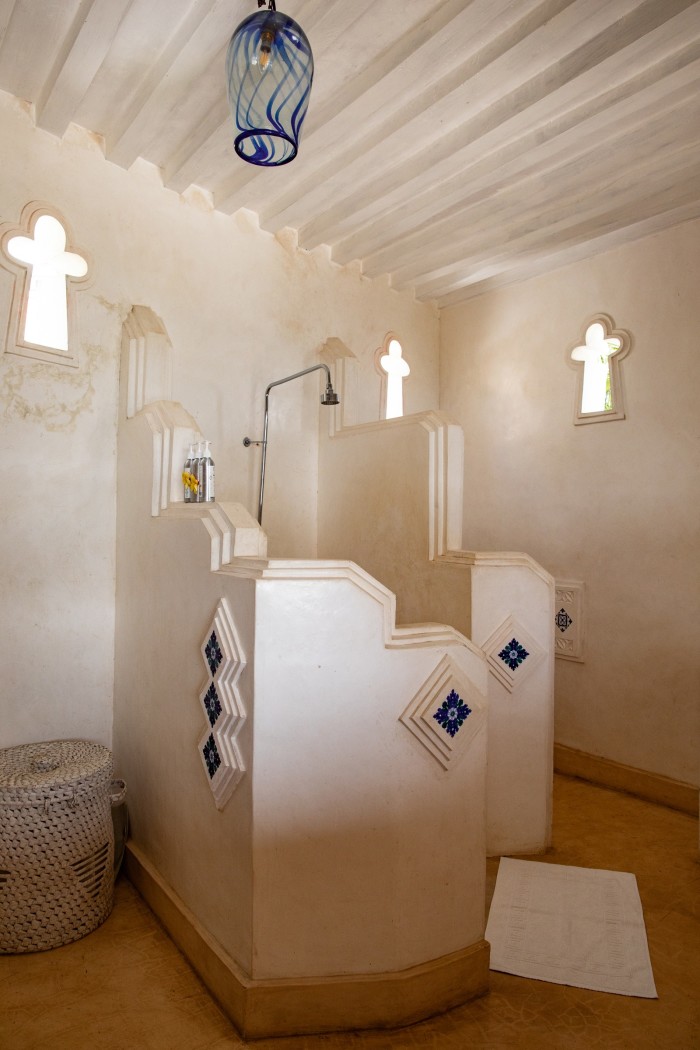
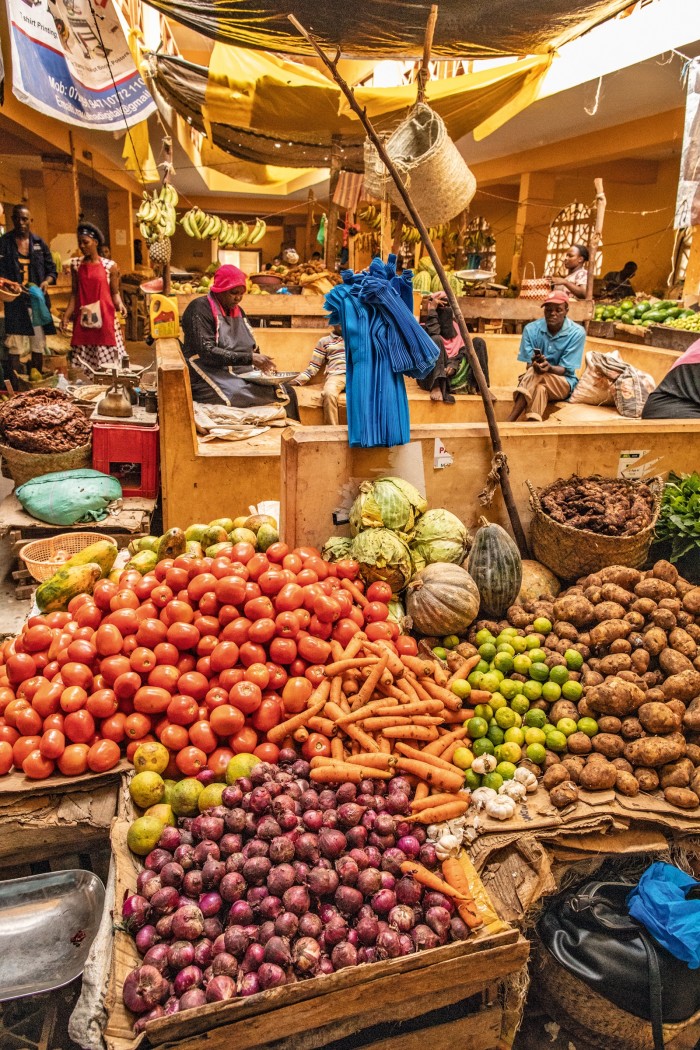
Time to swim the 3km straits myself – the cherished morning ritual of diehard Shelan residents. In the spring tide, the sea is oyster-coloured and as glossy as the molluscs I have been consuming by the dozen. They’re prised off the rocks in the outlying islands of Kiwayu by passing fishermen, and presented in baskets at the decks of Noor, one of three elegantly restored Mozambican dhows that are part of the Jannah experience, the newest offering on the Shela hospitality scene. In addition to those wide-decked wooden rigs are three residences, each sleeping four, plus a penthouse suite with an open rooftop terrace. They come with fully equipped kitchens, a concierge service and the kind of housekeepers who pin fresh jasmine corsages to your evening shirt.
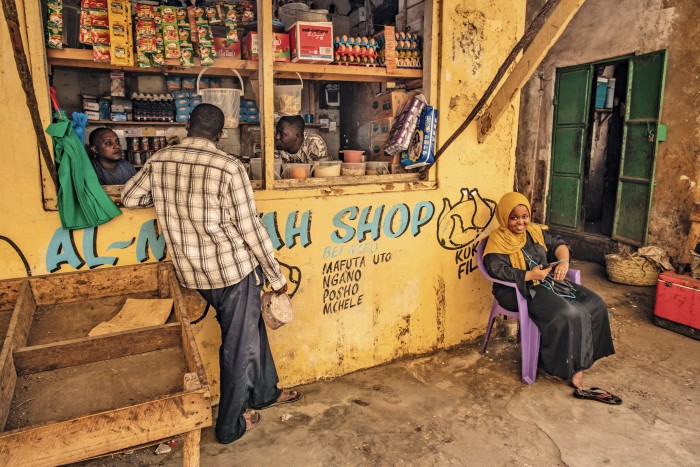
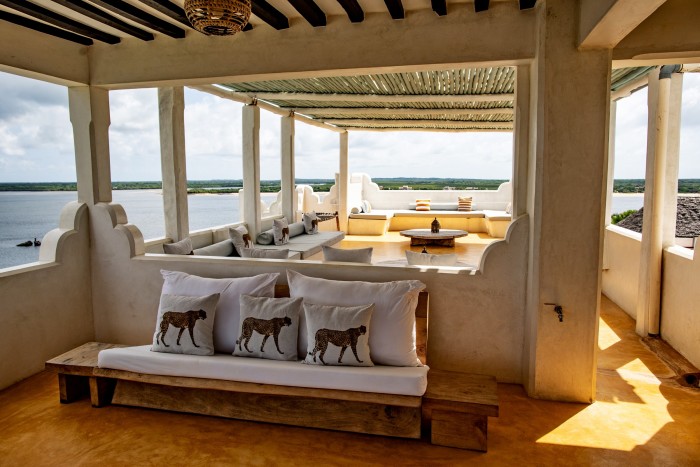
Jannah, whose interiors were designed by owner Anna Trzebinski, bridges a gap in Lamu between the more rustic private rentals and hotel stays, of which there are few. When she’s on the island, Trzebinski often accompanies Mahmoud Kale Bwana – alias Captain Smiley, her partner and the manager of the dhow enterprise – on the morning sail through the coralline inlets of nearby Manda Island. The brackish waters feed a vital ecosystem of spiny lobster, crabs, egrets and monkeys in dense mangrove thickets that act as a vital carbon sink. Trzebinski dreams of building a private beach club above them, a place for her guests to escape the fishbowl intensity of the social life of Shela. If the tide is high, she float-swims along the current of the main channel; then it’s back on board to the canopied decks for trays of cardamom-spiced coffee and dates.
As Captain Smiley hoists the lateen sail, we lean into the northerly trade wind and take off. The hand-constructed dhows vary in size, from fishermen’s canoes to the huge open vessels that ply the Indian Ocean, their cargoes of mangrove poles and coral rag replacing the slaves and ivory of the past. They have powered entire empires, cross-fertilising the cultures of China, India and Arabia along the east coast of Africa since ancient times. They are as much a feature of the landscape of Lamu as gondolas are of Venice or feluccas of Luxor.
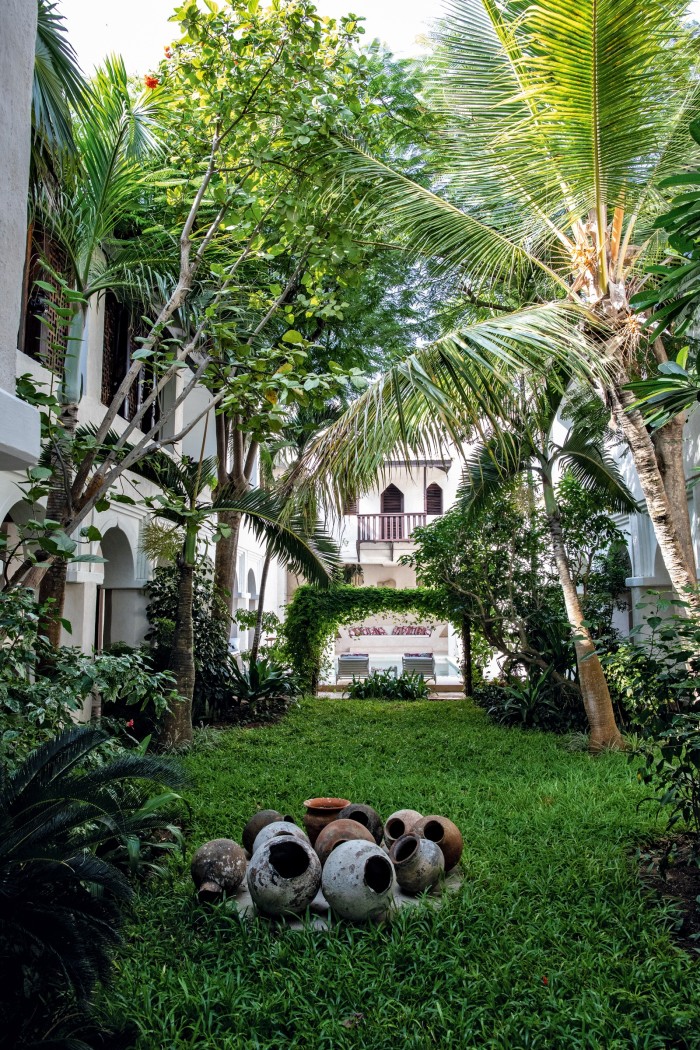

“People go on about the vibrant Shelan party scene, but I come to the islands to connect with myself and with nature,” Trzebinski says. She created Jannah (“paradise” in Arabic) to tap into her childhood memories of the place: the freedom of swimming in a clean channel protected from the swells and sharks of the Indian Ocean by dunes and reefs; the pleasure of sleeping under stars on deck; or of going barefoot in the sandy alleyways between the houses. Mahmoud half listens, chewing on his wad of khat.
The inherent sense of freedom makes Lamu Island a spiritual mecca for healers, seers, yogis and alternative-wellness seekers. Annett Sturk, a Norwegian “artist/interior designer/author/life coach”, is invited to join our swimming group; like Trzebinski, many regulars and high-achievers on holiday have Sturk on speed-dial. The group also includes photographer duo Angela Fisher and Carol Beckwith, and Shela habitué Babu British, a linen-swathed local celebrity. Over Old Pal cocktails at Peponi, he offers wry observations on its societal twists and turns. No one cares who anyone is here, he tells us – a promise of anonymity that is attractive to people like Jay Jopling and Hikari Yokoyama, prospective house shoppers hiding under their hats across the bar.
Jannah is the latest project in a series of Trzebinski offerings that originally included a bush camp, Lemartis, in Laikipia. Its penthouse, with its open terrace and views, is the stuff of honeymoons, kitted out with a billowy net-draped bed, cocktail shakers and beaded palm-tree candle holders. Traditional Islamic artisanal details add sophistication to contemporary Swahili interiors, in the form of lime-plaster polished floors, niches called zidaka, carved wooden doorways and ornate lattice screens. Its many windows catch whooshing monsoon winds, negating all need of mosquito nets or air-conditioning, although Jannah is almost unique in Shela for offering the latter. Trzebinski offers the highest level of comfort, yet claims the immersive village experience is not for everyone. Some guests have requested the sound be turned down on the muezzin, or for the crowing cockerel to be dispatched to the hotpot.
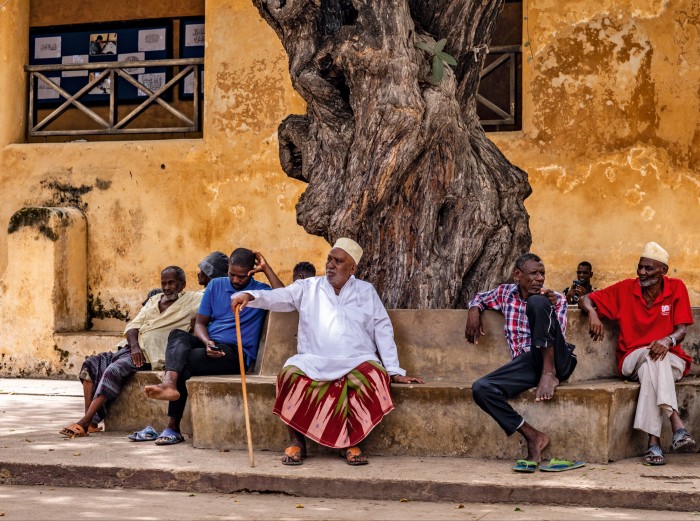
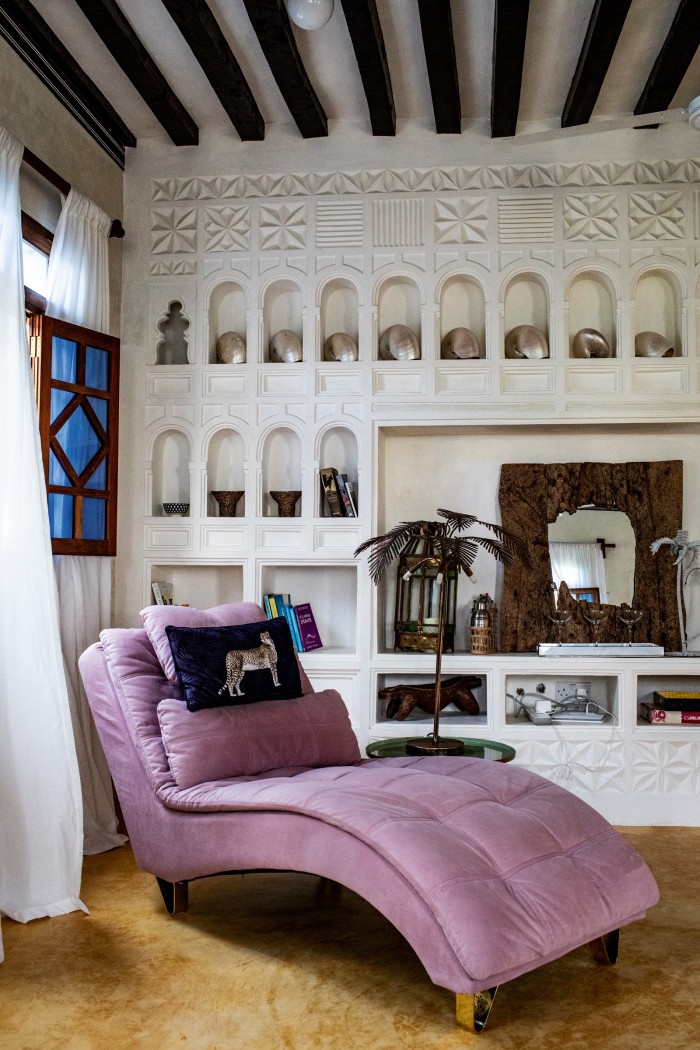
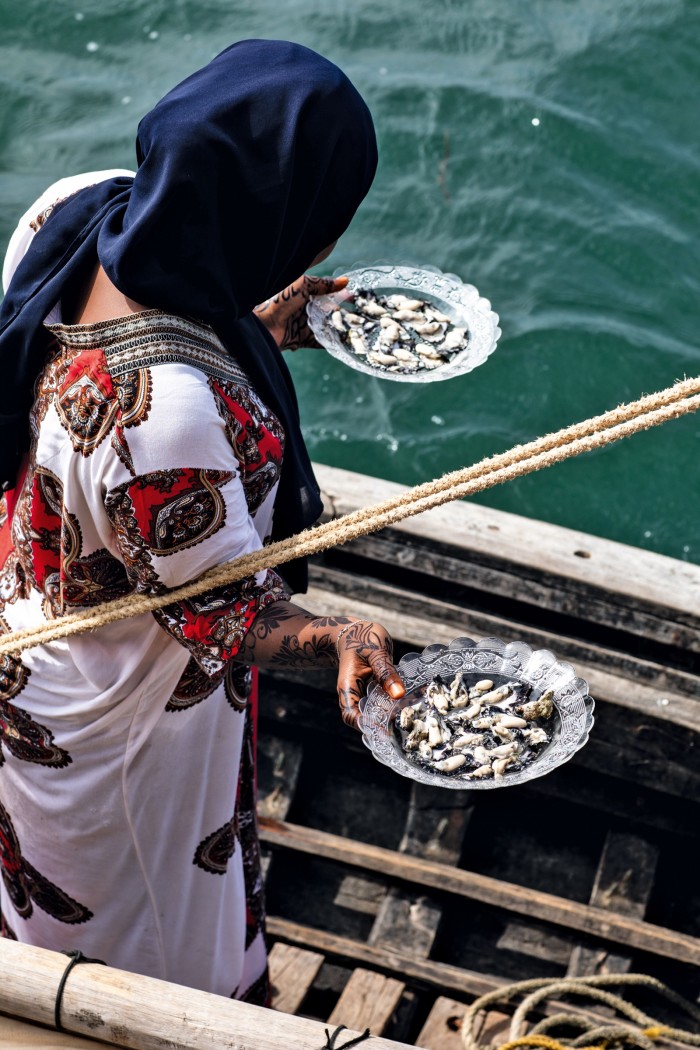
Next door, the Pink House is a breezy budget version of Jannah, with three cheerful bedroom suites and a communal breakfast terrace. From here, Trzebinski points at the unfinished jumble of flat village rooftops, “just crying to become makeshift studios” for an artist-in-residency programme she hopes to initiate. She would be following the example set by Lisson Gallery founder Nicholas Logsdail’s the Factory, a minimal space he created within labyrinthine Lamu Town, which operates as a refuge for artists like Marina Abramović and Anish Kapoor. Philanthropist and businessman Robert Devereux also loans his Swahili townhouse there to African artists who come to teach at the local orphanage, Anindan. Sina Jina, the “Place with no Name”, has been denuded of furnishings; Devereux wanted a fulcrum for creative talent and an oasis within the town’s vibrant, colourful chaos. Satan – a DJ who performs at Peponi and whose house is also a makeshift art studio for deprived kids – says Devereux is the real deal, a man who won’t rent out so as not to take away potential income from his neighbours.
You can’t actually function here as a business if you don’t respect the needs and customs of community,” says Trzebinski. “Whether it’s the ‘curfew’ after the 9pm muezzin or dressing soberly in a Muslim society.” Plenty have been hounded out, regardless of their bank balances; Trzebinski doesn’t serve pork products or alcohol, and there will never be a swimming pool in her walled garden.
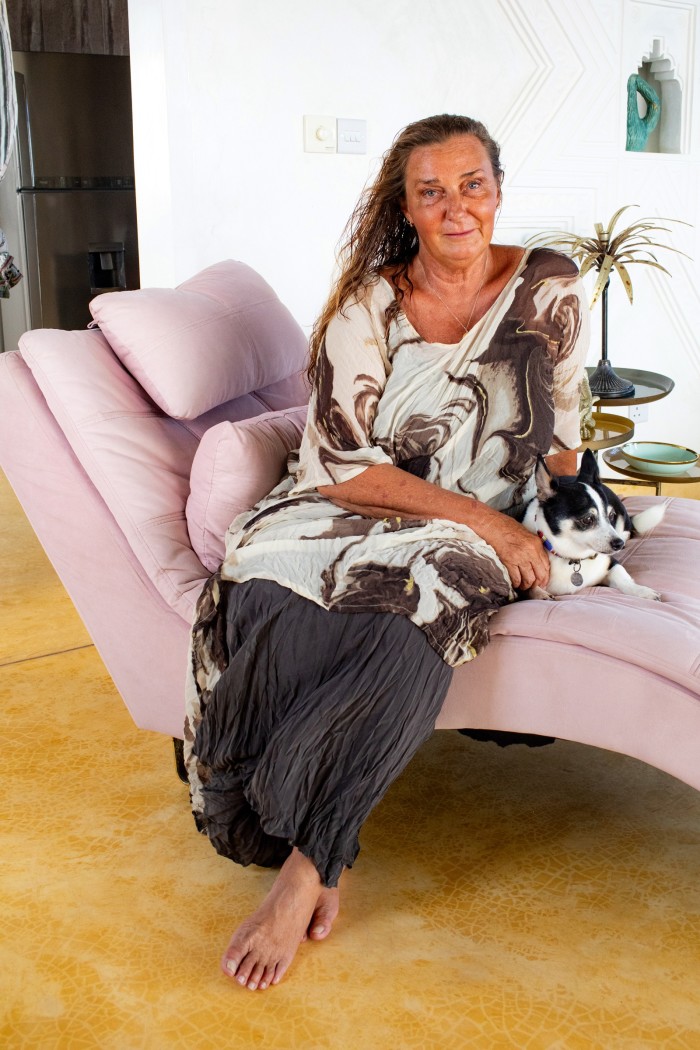
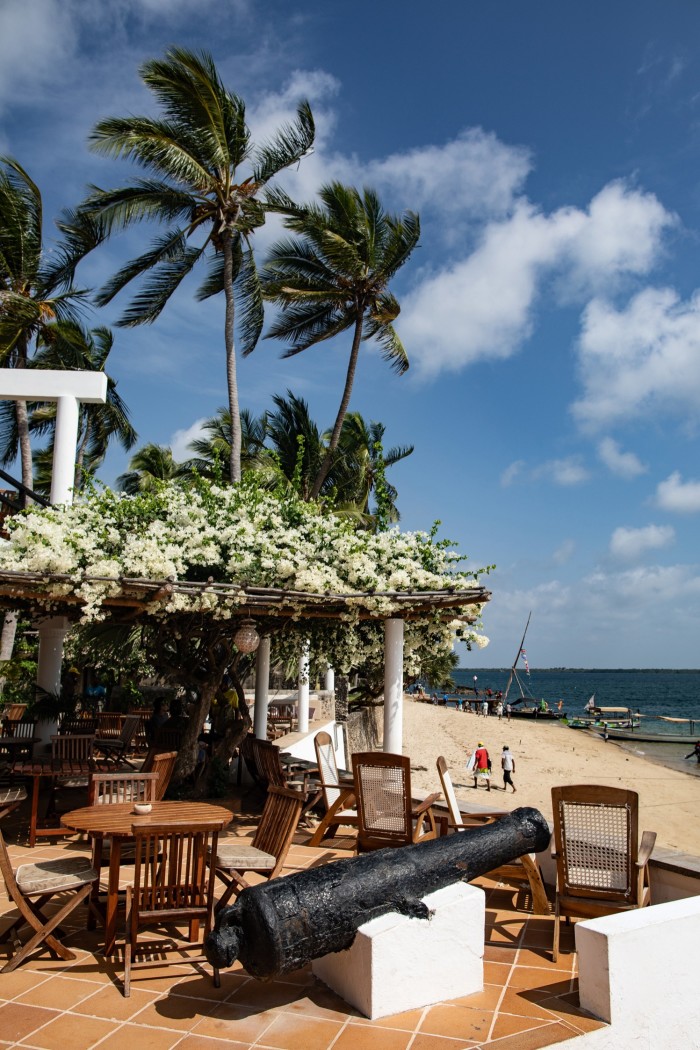
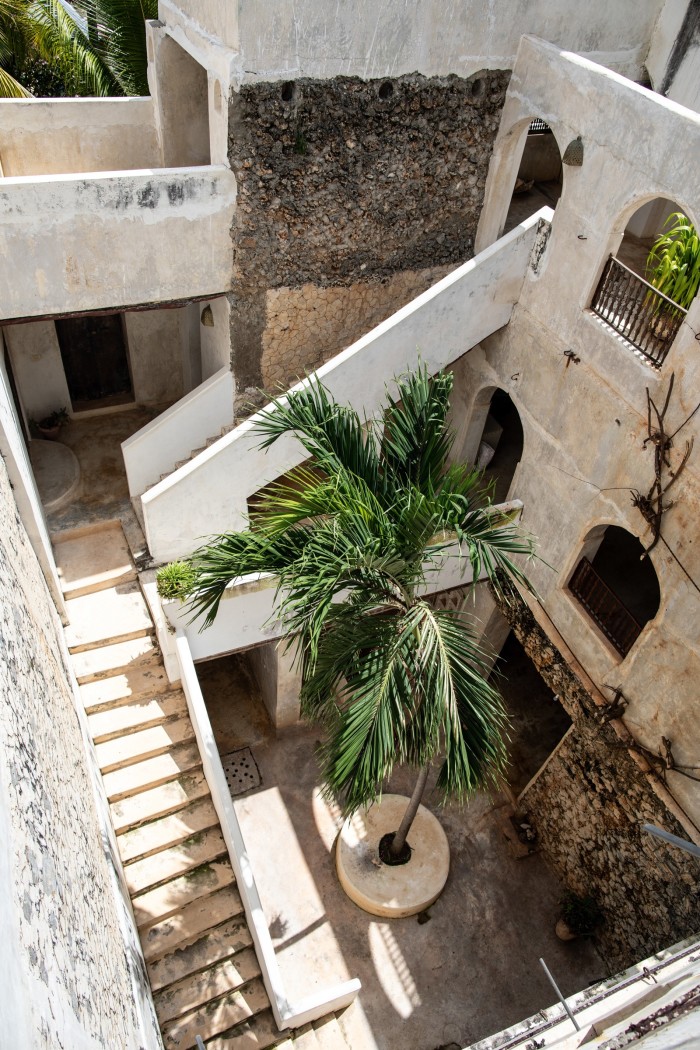
“She certainly has the sensitivity, the sense of perfectionism, to carry the Biki baton forward,” says Sidiki Abdulrehman Abdalla. A village elder, Abdalla is the former owner of seven-room Hajibiki, the final (and most exciting) Jannah renovation that will launch as a hotel in March next year, with an offshoot of Nairobi’s club-restaurant Cultiva featuring alongside it.
I ask Abdalla whether he worries that Shela has reached saturation point. “There is no more space to grow between the waterfront and dunes,” he says. But with only one bar and no nightclub, Mykonos this will never be: “The Swahili identity and culture are too true and strong; no number of privileged partygoers can dilute that.”
House-party season will persevere, of course, at airy villas such as US film producer Chris Hanley’s Honeymoon House, or Dhow House, belonging to Katy Barker, or at the filmic Omani-style Fort in the dunes. Revellers can repair to local dives on the floating platforms of the harbour, or dance on the sand at Majilis Resort on Manda Island, opposite Shela. Meanwhile, the same glamorous mix of roués and polite regulars from the Home Counties continues to wash up at Peponi’s bar and newly tiered restaurant. It may be that the tipping point everyone predicts for Shela is to come. But you wonder how it’s possible to contaminate a place that seems to harness serendipity, a place where unscheduled encounters open doors to new friendships, where – still – everything seems possible.
Catherine Fairweather and Don McCullin travelled as guests of Jannah Lamu (reservations@jannahlamu.com, from $280 for two people in the Pink House) and Cazenove + Loyd (cazloyd.com), which can arrange a Jannah stay as well as internal flights and transfers. Hajibiki opens March 2025. Jannah Boats, from $25pp for a morning cruise, $400 per full day. Lala Lamu (lalalamu.com) for accommodation across the island. Peponi Hotel (peponihotel.com), from $230
Comments